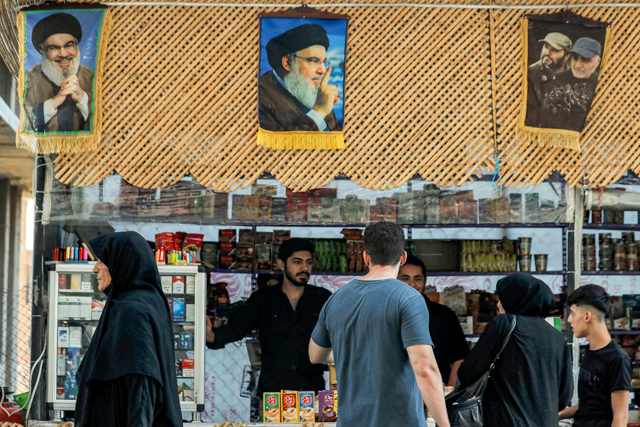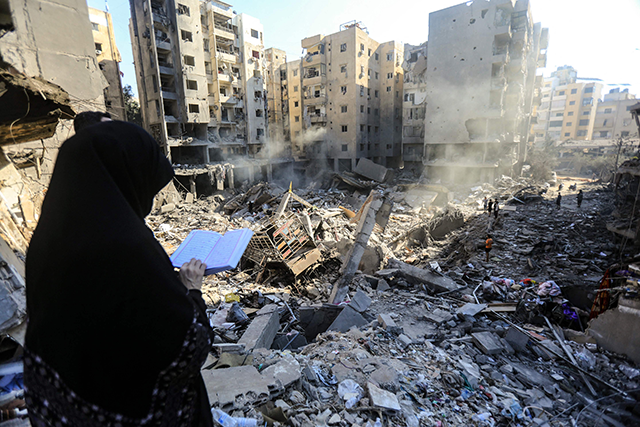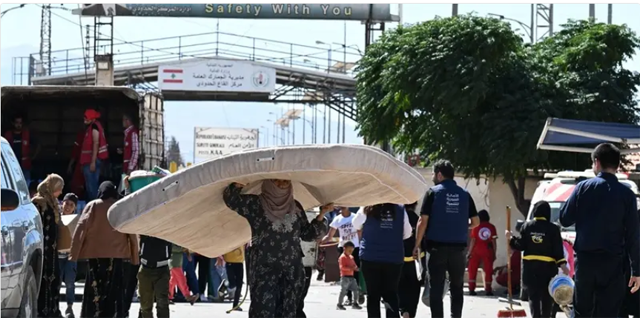DAMASCUS — In central Damascus, a giant screen aired images of Hizbollah leader Hassan Nasrallah as news of his killing in an Israeli strike reverberated across the city.
Syrians fear Israel's bombardment of neighbouring Lebanon could spill into government-held areas, which have already faced hundreds of Israeli strikes over the years.
"Sayyed Nasrallah's killing was a great shock and a tragedy for us and for Arab nations," said Ayham Barada, a 30-year-old shop owner. "We lost a man of great stature."
Nasrallah was a key ally of President Bashar al-Assad and backed the Damascus government's forces during the Syrian civil war. His group, alongside Russia and Iran, helped Assad to claw back lost territory.
Assad offered condolences to Nasrallah's family, saying he "will remain in the memory of Syrians" for heading the group during its fight "alongside Syria in its war against the tools of Zionism", referring to Israel.
In Damascus, the group has a presence in the Sayyida Zeinab area south of the capital, home to an important Shiite Muslim shrine that is protected by pro-Iran groups.
Nasrallah's face adorns walls across the neighbourhood and prayers echoed from loudspeakers, while young men distributed white roses and water to passersby, residents said.
Uncertainty
In other parts of the city, mourners gathered for three days to mark his death.
Authorities declared an official mourning period, with flags flying at half-mast on government buildings.
"We're anxious... Syria will definitely be affected, but we can overcome this, just as we have overcome bigger blows before," said Wissam Bashur, 36, who works in advertising.
"This is just one round of fighting in the larger battle," said Bashur, who has been glued to his phone for three days.
Damascus streets are filled with cars bearing Lebanese plates, as tens of thousands have fled Lebanon for Syria to escape Israel's air strikes, the United Nations said on Monday.
"The number of people who have crossed into Syria from Lebanon fleeing Israeli air strikes , Lebanese and Syrian nationals ,has reached 100,000," said Filippo Grandi, the head of the UN refugee agency.
"The outflow continues," he said on social media platform X.
For some, like Damascus resident Lubana Shaar, 36, Nasrallah's death marks the start of an uncertain new chapter.
"There is a before and an after Nasrallah. This is a great loss and we have a right to feel scared of what this next phase will bring," she said.
However, in rebel-held areas of Syria, many celebrated the death of Assad's ally , illustrating deep divisions in a country marred by 13 years of devastating war.
Activists and opposition leaders in Syria blame Hizbollah for helping to keep Assad in power and driving tens of thousands from their homes after fighting alongside his government's forces.
"Nasrallah was a tool to displace Syrians from their hometowns," said Ahmad al-Asaad, 34, who fled his village near the northern city of Aleppo for rebel-held Idlib.
"He was the main reason that I, as well as others celebrating his death, have been displaced," he said.

















